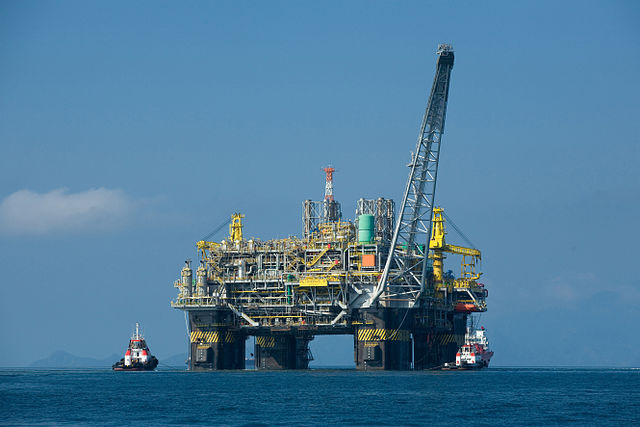There’s no denying that oil industry workers are at a high risk of injury and even death on the job. Long work days, high physical demands, and other factors can lead to human error that can lead to accidents. If you work in the oil and gas industry, you understand the risks that come with the job. You also know that you can take certain precautions to help reduce dangers on the derrick or oil rig. We’re sure you want to improve the safety conditions for your crew. We recommend you use these helpful safety tips for the oil and gas industry.
1. Drill Site Safety Basics
When it comes to safety on your jobsite, you are your first line of defense. Think about it. In the case of a fire, for example, you and your crew will attack the flames with fire extinguishers before the local fire department can mobilize and arrive at your jobsite. (This is not a critique of local fire departments, it’s a simple fact that it takes time for any emergency services to respond to an emergency.) Oil industry companies must accept this responsibility, then do everything they can to empower workers to act in these situations.
Here are some ways that the oil and gas industry can prepare workers to properly react to emergency situations until first responders arrive:
- Educate workers about their roles during emergencies
- Make people aware of potential hazards and safety precautions
- Communicate procedures and hazards to all new workers
- Keep floors and work areas clean and clear of hazards
- Put up clear safety signage that directs workers to emergency equipment and exits
- Supply possible problem areas with spill kits, fire extinguishers, and other safety gear
- Train oil industry workers how to use fire extinguishers and other safety gear
- Create legible and readable signs and labels that explain dangers and safety instructions
- Replace worn out signage as soon as possible
- Re-apply all faded floor markings
- Keep up with emergency and safety signage when worksites, projects, and crews change
2. Local Emergency Response Organizations
All companies in the oil and gas industry should reach out to the emergency response organizations in their area. If an emergency happens, it helps if you and your crew have a good relationship with the police, firefighters, and EMTs who will respond to your jobsite. If you have a good relationship with these folks, it might not have to come to that. Invited these first responders to walk through your derrick and offer tips to reduce specific health and safety hazards. These emergency workers might also have some tips to help you and your workers respond the moment an emergency situations occurs.
3. Keep an Eye (and Ear) Open
Oil industry workers are known for being tough, and it’s no surprise. You have to be strong to do these jobs well. Sometimes, the need to appear powerful is a determent to oil and gas industry workers, especially when they’re struggling with injuries, exhaustion, and/or stress. Laborers wanting to maintain that image of toughness might not let on about their injuries or issues, which puts everyone at risk on the jobsite.
If the “tough guy routine” is a factor on your jobsite(s), it’s up to you to keep a closer watch on the employees. Look and listen for signs that someone might need some rest or even medical attention. Also, take extra precautions to create an open door environment at the drill site. When laborers feel comfortable coming to you with their problems, they will. It makes them a lot more open to letting you get them the help they need.
4. Machine Maintenance is Priority No. 1
The oil and gas industry depends upon heavy machinery. While this equipment keeps these operations profitable, these machines can be risky if they aren’t maintained properly. Companies must complete regular maintenance checks on their equipment. It’s the best way to prevent the dangers of machine failure and keep your workers safe. It’s also a good idea to include machine maintenance in your practices and protocols. Also, check with Occupational Safety and Health Administration (OSHA) for additional resources they have on this subject.
5. Signal Boosters at Drill Sites
Derricks, oil rigs, and other oil industry job sites are often remote operations. In these places, the closest cell phone tower is often miles away. This can interfere with cell phone communications for you and your crew. It’s vital for oil and gas industry workers to stay connected with each other and the outside world. (If a fire breaks out, for example, you need to be able to call 911 to report the emergency.) Cellular signal boosters are the best way for oil industry workers to achieve this in low signal areas.
A signal booster enhances even the weakest cellular phone signals. This helps you and your crew stay connected in the field by reducing dropped calls and missed texts, and improving data speeds. As long as you can get at least one bar of connectivity on your phones, a cellular signal booster system can help you. These devices work with the 3G, 4G, and LTE data signals of nearly every wireless provider.
Signal Connect is your No. 1 source for the besto for the oil and gas industry. We specialize in providing these devices to the oil and gas industry. We have three options for the oil industry:
- Signal boosters for drill sites: This improves cell phone communication in your office and/or on the derrick.
- Vehicle cell phone signal boosters: These are a great solution for oil industry workers whose duties take them out in the field.
- Signal boosters for marine oil rigs: If you work with an off-shore drilling company, Signal Connect carries specialized cellphone boosters that can help improve connection depending on how far you are from the nearest towers.
A cell booster can work up to 10 miles offshore and in about 99% of the populated US. No matter what your needs, Signal Connect has the cell booster you need to reduce dropped calls and missed texts, and help reduce slow or interrupted data at your job site.
Get Help from Signal Connect
Could your company benefit from one of more cellphone signal booster systems? Signal Connect can help determine how one of these devices can improve your cellphone connectivity. We also can recommend the best weBoost or Wilson cellphone signal booster for your drill site, company vehicles, or marine oil platform. To learn more about how these devices can help you, call us at 888-233-7563 or fill out the online form below. A member of the Signal Connect team will follow up to answer your questions and discuss how we help the oil and gas industry.





